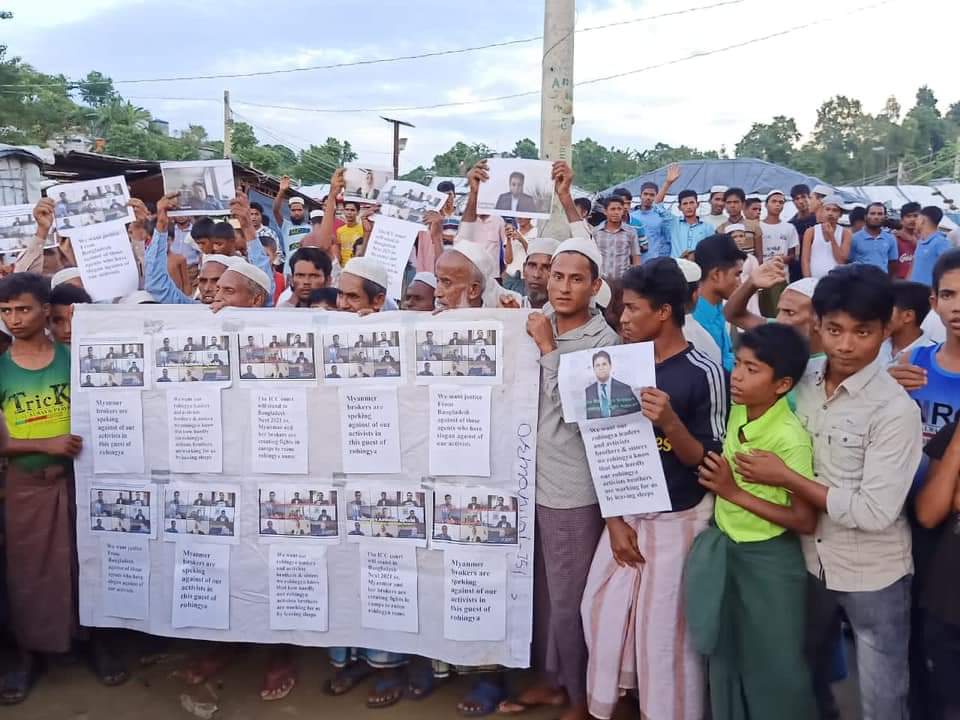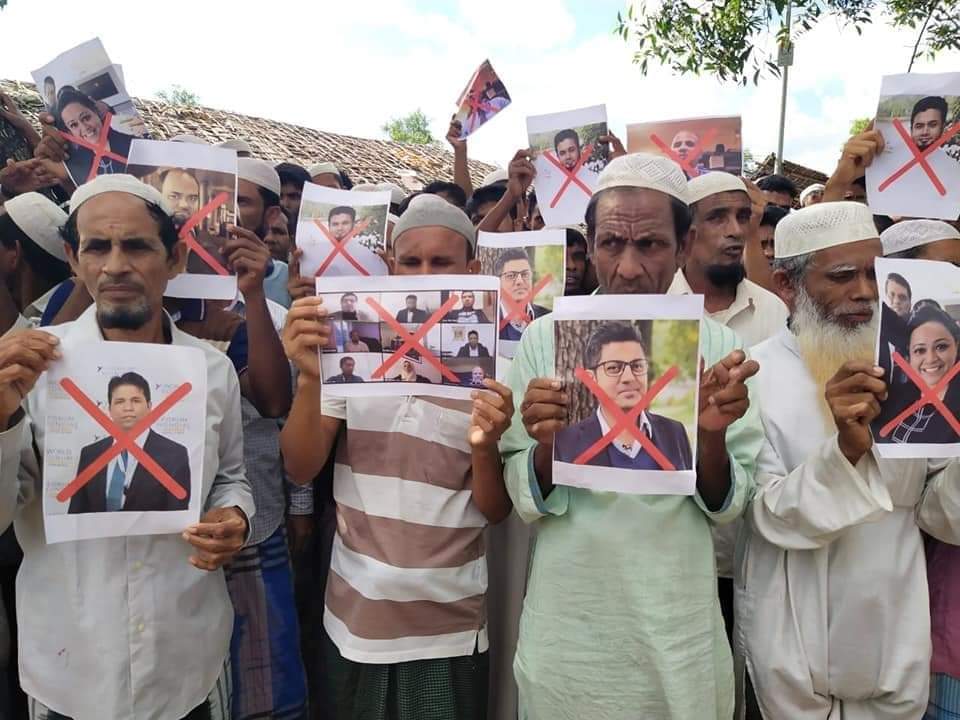BANGLADESH. Coxsbazar Rohingya Refugee Camp: There are 34 Rohingya refugee camps in Teknaf and Ukhiya in Bangladesh. 12 lakh Rohingyas are living as refugees in 4,000 acres of forest area. There are criminals living among the refugees who hold ordinary Rohingyas hostage. Whenever an individual or an organization of the Rohingya community campaigns for safe repatriation, the armed groups kill them. Rohingya refugees and local Bangladeshis are living in fear.
Rohingyas fleeing into general population
The Inter-Sector Coordination Group (ISCG) is an international organization working with the Rohingya people. According to their latest estimates, the number of Rohingyas in 34 camps is now nine lakh five thousand 622 people. This includes 34,000 Rohingya who came in 1991. No one knows where the remaining two lakh Rohingyas have gone. However, all quarters, public and private, think that these Rohingyas are merging into the locality. They have spread to different cities including Dhaka and Chittagong.

European Rohingya Rights Organization Vice President calls for end of illegal activities
On 20 October, the Free Rohingya Coalition organized an online conference with Rohingya leaders from different countries to discuss the ongoing conflict.
All participants demanded that the Rohingyas stop their wrong doings. Ambia Parveen said, “The whole world knows that we are the victims of the Myanmar army. We are victims of oppression. But now people think we are criminal gangs, we are murderers, we are human traffickers. This is sad for our nation. You stop all this. Be prepared against your enemies without killing your own people. And stop these injustices. We will get proper justice. We have come close to that. You stop these murders, drug trafficking, human trafficking.”
She also added, “Those who work as imams in different mosques of the camp, you should not say anything provocative in the sermon, you should explain the words of their faithful duty. Murder, drugs, human trafficking is not the work of peace, not the work of religion. Explain that all countries have laws, they must be obeyed.”
The Free Rohingya Coalition Organization claims that 20 Rohingyas were killed in clashes between the two groups between 3 and 7 October. As a result, the law enforcement agencies in Bangladesh are working to bring law and order in the camps. Rohingya leaders are worried about their involvement in the conflict.
Protests erupt in camps
Nine Rohingya leaders opposed the conflict in the camps and called for an end to the drug trade. A group marched with placards on 25 and 26 October at Rohingya camps in Ukhiya and Teknaf, Bangladesh, against the statements of the nine Rohingya leaders: Dr. Ambia Parveen, Nay San lwin, Mojib Ullah, Zaw Min Htut, Khairul Amin, Tun Khin, Hla Kyaw, Anwar Arkani, Mohammad Ibrahim who spoke at the conference.
The protesters called them enemies of the Rohingya nation and demanded a boycott of the Rohingya Leaders. Those who spoke at that online conference were threatened with death.

Armed Police Battalion-14 (APBn) Second Commanding Officer Rakib Khan told Transcontinental Times, “We are aware of the procession [protest]. We will continue to try to find out more details.”
The Free Rohingya Coalition Organization said in a statement on 26 October “That no matter how many processions are held against us, we will stand united against injustice. Some Rohingya groups marched with banners and placards on 29 and 30 October in support of the nine Rohingya leaders in the Rohingya camp.”
Speeches made by the Rohingyas emphasized that they are an oppressed nation, “we are for peace. We have organized this procession for those who work for us, for our rights. Our brothers are not afraid, we are with them.”
Rohingya leader Nay San Lwin told Transcontinental Times, “I did not know who the protesters were, from which camp. Let us stand for it, let us stand against it. We want them to stop these misdeeds. Let the Rohingya protect the dignity of the nation. We will work for the rights of our nation, and we will stand up against injustice.”
Some Rohingya are joining terrorist groups
Senior Journalist & Rohingya Expert Subir Bhaumik told Transcontinental Times, “The Rohingya were trained by establishing contacts with various international terrorist groups. The Rohingyas want to implement a Pakistani objective in Bangladesh, wanting to create a disturbance.”
He added, “Some Rohingya groups have regular contact with the Myanmar army, which provides them with weapons, money, and even training. Rohingyas should campaign among themselves for the repatriation without clashing among themselves. Bangladesh should create a flawless security zone.”
Law enforcement agencies increase intel
As a result of repeated clashes, killings, kidnappings, and trafficking in women, Rohingya terrorists are now becoming an increased threat. Law enforcement agencies of Bangladesh have increased the regular community networking in the camps, trying to build confidence in the police among ordinary Rohingyas. Not only APBN but also Rapid Action Battalion (RAB) and Bangladesh Army are working to maintain order in the camps. APBN-16 arrested Salman Shah, the head of the Salman Shah group, for possession of weapons and drugs, along with Aman Ullah, an accomplice of the Zakir Robber Gang.
Hemayetul Islam, commanding officer of APBN-16, told Transcontinental Times that, “the number of Rohingya whom clashed was low. But since most of the camp is mountainous, they can easily cross the camp by committing various crimes. But APBN-16 is working to strengthen security. We have arrested a number of notorious terrorists and terrorist leaders. We are all working hard. We will eradicate these criminals.”

